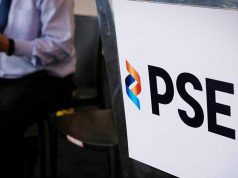INCOMING third telecommunications player Mislatel consortium said it is expecting to receive the permit to operate from the National Telecommunications Commission (NTC) by July, as it currently prepares for the submission of its performance bond to the government.
Adel A. Tamano, spokesperson for the group, said in a mobile message they were notified on Monday that Congress authorized the transfer of controlling interest from Mindanao Islamic Telephone Company, Inc. (Mislatel) to the consortium.
The Mislatel consortium is formed by China Telecommunications Corp., Dennis A. Uy’s Udenna Corp. and Chelsea Logistics Holdings Corp.
“We were informed Monday… There are still some procedural and regulatory matters/submissions to the NTC before the issuance of CPCN (certificate of public convenience and necessity). Hopefully we can get our CPCN by July,” Mr. Tamano told BusinessWorld Wednesday.
To recall, the awarding to the consortium of frequencies and CPCN — or permit to operate — was scheduled in February, but was delayed due to issues in Mislatel’s transfer of ownership from its previous owners to the consortium, which required approval from the Congress.
“We are particularly thankful that the Congress included this matter in their order of business immediately upon resumption of Congress,” Mr. Tamano said in a statement.
He noted the consortium is required to post its performance bond of P25.7 billion before it will be given its CPCN and frequencies, which the group is targeting to complete by June.
“To do that, we have to go through an SEC (Securities and Exchange Commission) process for increase in authorized capital stock,” he said.
Aside from the CPCN, the government is set to award the Mislatel consortium with frequency bands of 700 megahertz (MHz), 2100 MHz, 2000 MHz, 2.5 gigahertz (GHz), 3.3 GHz and 3.5 GHz.
The Mislatel consortium is the winner of the government’s bid for a new telecommunications player last year, where it sought for a competitor to industry giants PLDT, Inc. and Globe Telecom, Inc.
It is scheduled to launch commercial operations by second quarter of 2020, with a commitment of delivering an average minimum broadband speed of 27 Megabits per second (Mbps) in its first year of operations, and 55 Mbps in the succeeding years. — Denise A. Valdez



